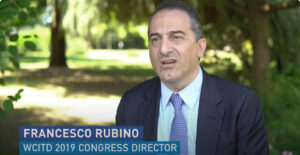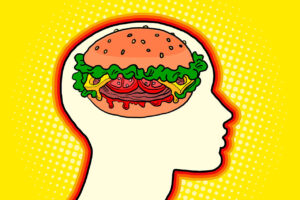We are pleased to share that our research team has published a new article in the international journal Current Issues in Molecular Biology. The paper is titled:
“The Duodenum-Centered Neurohormonal Hypothesis of Type 2 Diabetes: A Mechanistic Review and Therapeutic Perspective.”
This publication presents a novel way of understanding type 2 diabetes. Rather than focusing only on the pancreas or insulin resistance, it emphasizes the role of the gut — especially the duodenum — and the powerful neurohormonal signals that influence the entire body.
Why This Work Matters
Type 2 diabetes is commonly explained as a condition of insulin resistance and eventual failure of the pancreas. While these mechanisms are real, they do not fully explain why diabetes has become so common in modern societies. Diets rich in fat and rapidly absorbed carbohydrates appear to overstimulate the digestive system, leading to chronic metabolic stress.
This is why type 2 Diabetes remission through metabolic surgery is such an important concept: by changing the way food is processed in the gut, surgery can target the root causes of the disease, not just its symptoms.
The Role of the Duodenum
The duodenum is the first segment of the small intestine and the central control hub of digestion. When food reaches the duodenum, nerves and hormones stimulate the pancreas and liver to release digestive juices. Normally, this process is carefully regulated.
Modern diets, however, cause what we describe as amplified digestion: nutrients are broken down too quickly and absorbed in excessive amounts. This constant overload contributes to insulin resistance, weight gain, and ultimately diabetes.
By altering or bypassing the duodenum, type 2 Diabetes remission through metabolic surgery becomes possible — and in many cases, this improvement occurs before any significant weight loss.
Gut–Brain Communication
The digestive system is not isolated. It communicates constantly with the brain and other organs through the vagus nerve and hormones such as cholecystokinin (CCK) and secretin. These signals regulate not only digestion but also blood sugar control, appetite, and energy balance.
When overstimulated, this network drives the metabolic disturbances that underlie diabetes. Correcting this imbalance explains why type 2 Diabetes remission through metabolic surgery often occurs within days of an operation.
Why Surgery Can Help
Metabolic procedures such as gastric bypass re-route the passage of food, limiting direct stimulation of the duodenum. This reduces excessive hormonal and nerve activation, restoring balance to the digestive and endocrine systems.
This mechanism is why many patients achieve diabetes remission through metabolic surgery even before they experience weight reduction.
Our research goes one step further: we propose that adding truncal vagotomy (surgically dividing the vagus nerve) to gastric bypass could further reduce abnormal stimulation. This combined approach is now under investigation in the VagusSx Clinical Trial, designed to test whether vagotomy enhances the effect of diabetes remission through metabolic surgery.
What This Means for Patients
For patients, this research highlights a message of hope. While lifestyle changes and medications remain important, diabetes remission through metabolic surgery shows that remission is possible — not just temporary control, but long-lasting improvement.
This means fewer medications, better blood sugar stability, and a reduced risk of complications. For many, it represents a chance at a healthier, more independent life.
What This Means for Doctors
For doctors, the implications are significant. Type 2 diabetes should not be viewed only as a problem of insulin supply and resistance. It is also a gut-centered, neurohormonal disorder.
Recognizing diabetes remission through metabolic surgery as a valid therapeutic outcome reframes surgery from a last resort into a powerful tool for metabolic regulation. It also opens the door for new therapies that target the same pathways without surgery.
Looking Ahead
Our publication is a milestone in diabetes research, but it is only the beginning. The ongoing VagusSx trial will provide the first prospective clinical evidence on whether combining vagotomy with gastric bypass can lead to stronger and longer-lasting type 2 Diabetes remission through metabolic surgery.
We believe this approach may change the way diabetes is treated worldwide — aiming not only to manage the disease but to reverse it.
Final Thoughts
Type 2 diabetes remains one of the greatest health challenges of our time. By re-examining its origins and developing new strategies, we can move closer to a future where remission is realistic for millions of people.
You can read our full article here:
👉 The Duodenum-Centered Neurohormonal Hypothesis of Type 2 Diabetes (Current Issues in Molecular Biology, 2025).
At diabetes.surgery, we will continue to share updates on the progress of the VagusSx Trial and the expanding role of type 2 Diabetes remission through metabolic surgery in transforming patient care.


